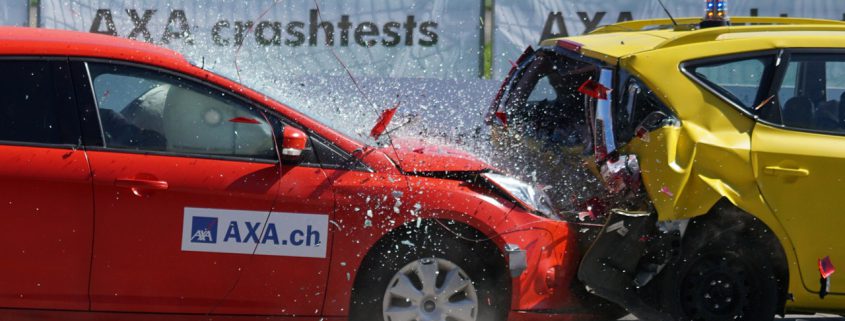How to avoid rear-end collisions
Do you know how many accidents involve rear-end collisions? Almost one-third of all accidents occurring in the United States are rear-enders! That is a huge amount of accidents causing a lot of damage! Rear enders can cause serious damage to your vehicle and the vehicle of the other driver. Plus, if you are the car that goes into the back of the one in front, you are responsible for both repairs.
Getting into a rear-end collision certainly isn’t fun. The good news is that there are a lot of things you can do while driving to minimize the chances of you being involved in one. Here are some of our favorite tips and tricks.
Leave more space
Yes, it seems very obvious, but leaving more space between you and the car in front is hands down the best way to avoid getting into a rear-end fender bender. The more space you leave between you and other vehicles, the more time you have to react to what happens on the road. You also have more space for braking. Remember, the faster you are going, the more space you should leave. That means no tailgating on the highway!
Keep checking all of your mirrors
While it is not your fault if the vehicle behind drives into the back of you, there are things you can do to minimize the chance of this happening. One of these things is to use your mirrors as much as possible and be aware of all cars on the road, not just your own and the car in front. If the vehicle behind is very close to you or seems to leave braking to the last minute, adjust your driving to give them more time.
Brake slowly
Another tip to stop the car behind from driving into the back of you is to brake slowly. The more time you give the person behind you, the more time they have to brake. Slamming on the brakes at the last minute is a sure-fire way to get involved in a rear-ender. Even if you have good reactions, there’s no guarantee the driver behind does too.
Keep your eyes on the road
Checking your phone whilst driving? Looking at your passengers? Speaking on the phone? The more distracted you are whilst driving, the less likely you are to notice the car in front braking. Keep your eyes on the road at all times. If something needs your attention urgently, pull over before dealing with it.
Be aware of the conditions
Some driving conditions require you to take more care than others. Driving in rain, snow or ice is going to seriously affect every car’s ability to brake. You need to factor this into your driving and make sure that you allow plenty of space between you and the car in front as well as plenty of time to brake.
Check your lights are working
Even if you leave plenty of space between you and the car in front, brake slowly and drive at a sensible speed, it can all be for nothing if your brake lights aren’t working. Make sure that you check them regularly to avoid accidents.



